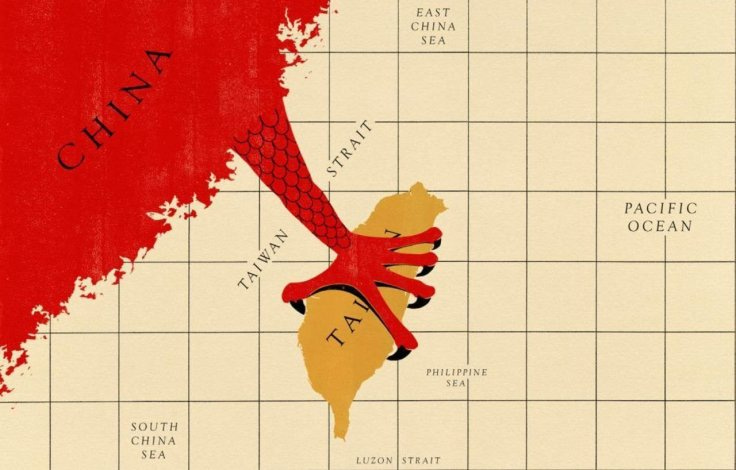Taiwan is Losing its Spy Wars with China
The communists have long had an espionage advantage over the nationalists, but widespread Taiwan defeatism adds to their leverage.
UPDATED
If you follow developments in Beijing’s worldwide espionage and influence offensive, you’ve probably heard that the FBI opens a case regarding China every 10 hours (the 2020 figure) or 12 (2021). Doing the math, 8,760 hours per annum means something like 876 new cases a year, or in the updated version, 730.
These are only the new cases, not the total figure for open investigations—which could add up to several thousand, as such inquiries can last for months or years without resolution, public or private. Beyond the small number of cases the Justice Department brings to indictment and trial each year, it does not say how many cases it has closed.
The numbers suggest an overwhelming challenge, even as the Bureau bolsters its efforts to combat Chinese counterintelligence, counterespionage, tech transfer, and other matters—not to mention its drive to recruit special agents with Chinese language skills.
But if you think America has a tough nut to crack, consider our brethren in Taiwan. There, the Republic of China, as it’s formally known, is battling an astounding onslaught of Beijing’s spies. Such subversion raises the question of whether Taiwan will really be able defend itself during an invasion until help arrives from the U.S.—or even whether it will fight.
In 2017, Taiwan’s National Security Bureau publicly estimated that 5,000 mainland spies were operating in Taiwan. When SpyTalk interviewed former ROC senior intelligence officers in Taipei in May, one of them said the real number is closer to 2,000 to 3,000. But even that more modest figure is a lot of spies for Taiwan, an island the size of Belgium with a population of 24 million.
Whatever, these numbers are not universally accepted, nor is evidence offered to support them. But occasional revelations do not contradict Taipei’s official claims, and some of those cases are alarming. One involved a former Taiwanese Navy rear admiral, and another earlier this year implicated a retired Taiwanese Air Force colonel and six accomplices. Other significant cases were described in a 2021 Reuters investigation.
Flood the Zone
There are clues to Beijing’s spycraft in the history of the Chinese Communist Party. They show that the CCP prefers to flood the landscape with spies, saboteurs, and influence peddlers—at least when the circumstances allow.
The first time that CCP’s spymasters had an opportunity for massive infiltration of the enemy was during the darkest days of World War Two in the Pacific. In early 1942, only weeks after the December 7th, 1941 attack on Pearl Harbor, Japan’s invasion and occupation of the Chinese mainland was at its high tide. China’s defenders had been driven far inland, leaving only scattered Nationalist and Communist guerilla units in the coastal provinces.
But the CCP civilian intelligence organ, led by legendary spymasters Pan Hannian, Li Kenong, and their infamous boss, Kang Sheng, had just spent two years rebuilding CCP Intelligence in the safety of their headquarters in Yan’an after the party’s spy apparatus was nearly destroyed in the 1930s. And they had renewed resources for recruitment: students and others who fled to the Communist headquarters from Japanese-occupied zones as well as provinces still held by the notoriously corrupt Chinese Nationalists, led by Generalissimo Chiang Kai-shek. At a conference of the CCP Southern Bureau in January 1942, Mao Zedong’s right hand man, Zhou Enlai, told assembled cadres that the party was inserting more than 5,000 intelligence agents and CCP activists into Sichuan, Guizhou and Yunnan provinces, all areas largely controlled by the Nationalists, to pursue organizing and propaganda tasks (“underground” work) and espionage. It was just another stage in their long running civil war, no matter the brutal Japanese occupation.
Communist spy rings behind Nationalist lines multiplied as Chiang’s forces grew weaker over the 1940s, with CCP agents finding increasing success in recruiting moles in the opposition. One prominent example: Nationalist General Yan Baohang.
Yan was, by day, a military strategist for Chiang Kai-shek, but he led a double life as a CCP intelligence asset controlled by Zhou Enlai. By some accounts he was part of a joint operation between Zhou and a Russian military attaché. Yan’s group passed along military and other secrets to Mao’s headquarters in Yan’an, including a warning of Germany’s plans to invade the Soviet Union shortly before the Nazis launched their attack on June 22, 1940.
At the end of the World War, the CCP infiltrated thousands more of its agents into the weakened Nationalist Party and its army, hastening their defeat on the mainland and final retreat to Taiwan in 1949. Writing from safety in Taipei, Chiang Kai-shek admitted in his memoirs, as documented by the late scholar Frederick Wakeman, that “there was no space that they did not enter” (无孔不入wu kong bu ru). The playbook for penetrating the “renegade” regime had been set. By the looks of the situation on Taiwan today, the strategy has continued to work well for over 70 years.
Advantage, Beijing
Who will prevail in the modern espionage and influence struggle between Communist China and Taiwan? The outlook for Taipei, aggravated by several factors, looks grim.




